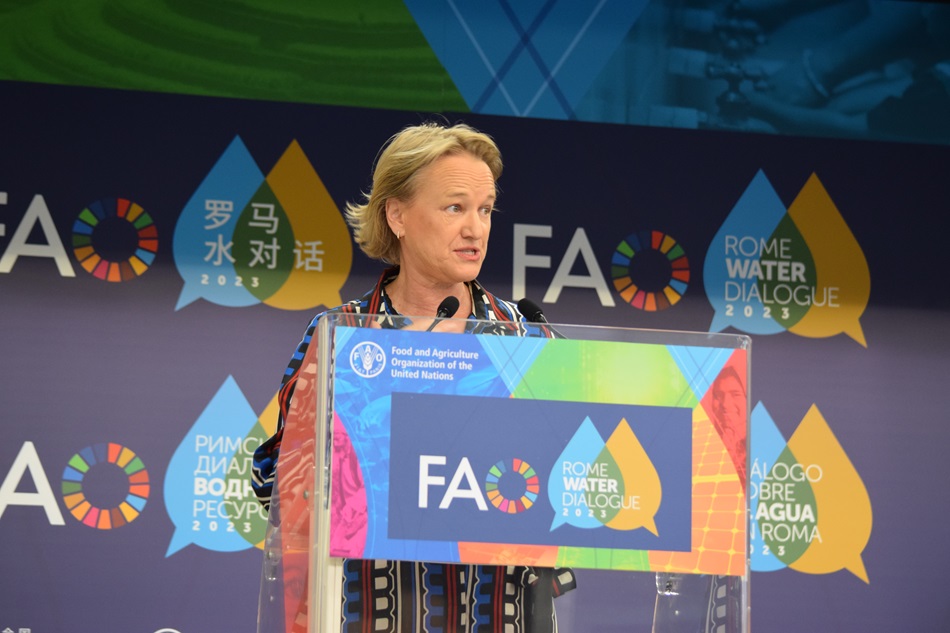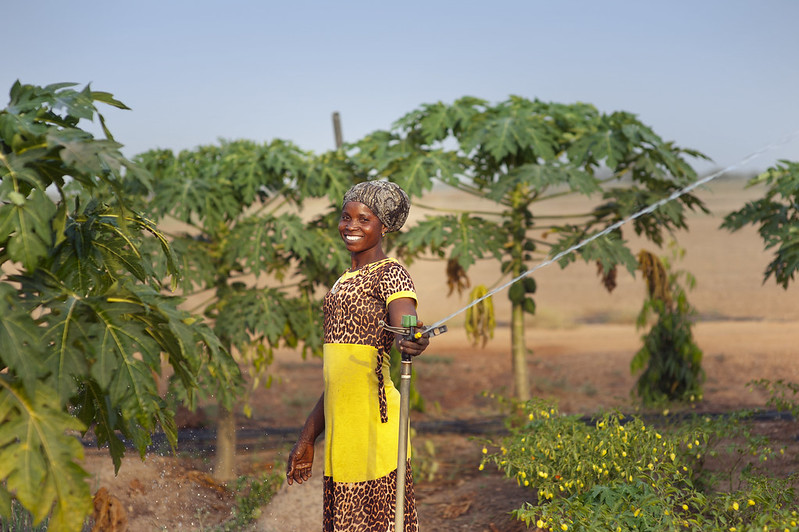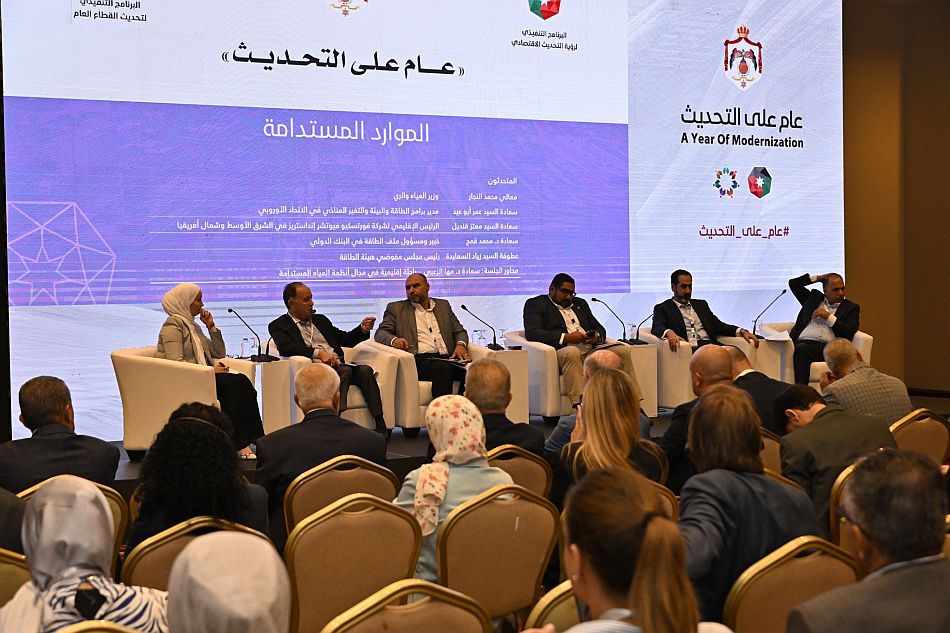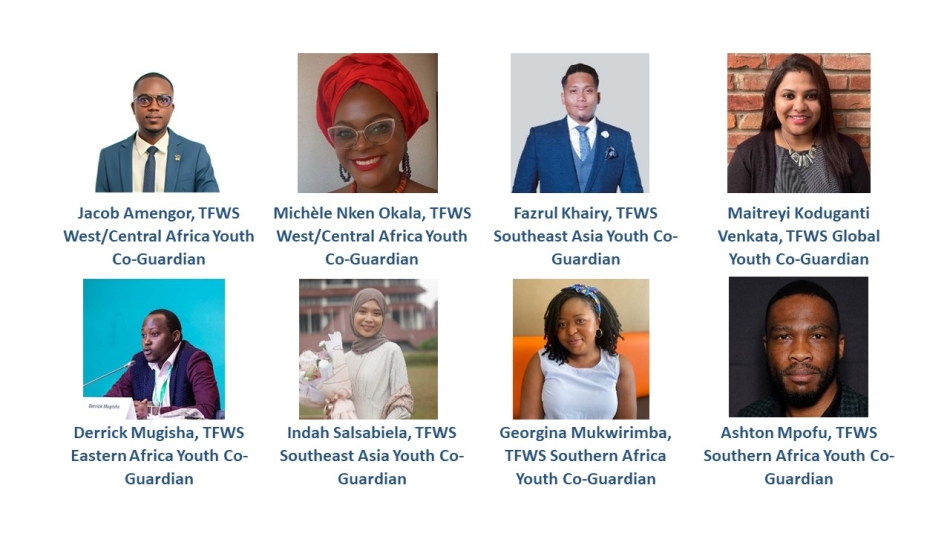Researchers contributed to global policy discussions during the Rome Water Dialogue and the Committee on World Food Security, both hosted by FAO in October.
By Luisa Chantler Edmond, Princeton in Asia Fellow

October was an important month for food and water policy discussions, as the Food and Agriculture Organization of the United Nations (FAO) hosted two key global dialogues in Rome. IWMI participated and offered insights in both: the 2nd Rome Water Dialogue and the 51st Session of the Committee on World Food Security (CFS 51). The conferences brought together experts and representatives from governments, international organizations, NGOs, research institutes and financial institutions, to further commitments to a food- and water-secure world.
Kicking off October, IWMI Deputy Director General Rachael McDonnell attended the 2nd Rome Water Dialogue to share IWMI’s knowledge and experience on building water-resilient food systems. FAO used the conference as a platform for cross-sectoral discussions aiding progression towards each of the Sustainable Development Goals. McDonnell’s contributions to the Rome Water Dialogue came in advance of further important discussions on the topic set to take place at COP28 in November and December.
The Rome Water Dialogue also saw the launch of “Water quality in agriculture: Risks and mitigation,” a joint venture between IWMI, led by Senior Fellow, Research Quality Advisor Pay Drechsel, and FAO. Offering a comprehensive look at technical solutions and good agricultural practices for institutions working in low- and middle-income countries, the book is a milestone publication on the topic.
All roads lead to Rome
Global delegates convened in Rome at the 51st Session of the Committee on World Food Security with a collective goal: “Making a difference in food security and nutrition.”
On October 27, 2023, IWMI researchers explained the implications of water tenure on food and water security. This time, McDonnell was joined by IWMI Scientist Emerita Barbara Van Koppen for FAO’s Global Dialogue on Water Tenure. The side event explored water and land tenure as the foundation of food security, nutrition and climate resilience. Promoting responsible water tenure is an FAO commitment, and the event sought to advance thinking surrounding the customary governance of water tenure, whilst highlighting that responsible water governance must prize and advance social inclusion.
McDonnell proposed that “effective water interventions to tackle the increasing climate crisis need to be local, inclusive of different knowledge, consultative and bottom up. It also means we should be working with different forms of decision-makers including those based around customary land and water governing systems.” Building on her call for increasing bottom-up interventions in water tenure, Van Koppen explained IWMI’s work in exploring “legal tools that prioritize water for life and food security before water for vested interests.”

Time to act
Ahead of CFS 51, McDonnell co-authored “Acknowledging, measuring and acting on the importance of water for food and nutrition.” The paper, published on Nature Water, encourages concurrent investigations of food and water insecurity which could expose “unappreciated drivers of adverse health and nutrition.” The authors called for decision-makers to recognize the relationship between food and water security, measure its impact and develop policy with the capacity to help eradicate food and water insecurity.
CFS 51 came just days after World Food Day, celebrated globally on October 16, which focused on the importance of water to our global food systems. This year’s slogan, “water is life, water is food,” underlined the intricate and intimate relationship between water and food in supporting life on this planet.
IWMI will continue to contribute innovative ideas and strategies at global conferences as the year draws to a close, including COP28.
















